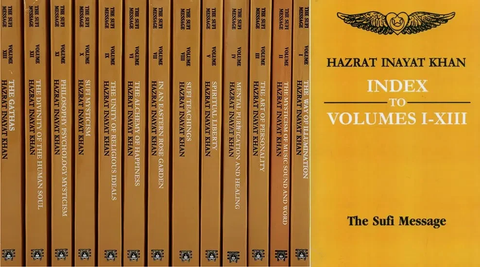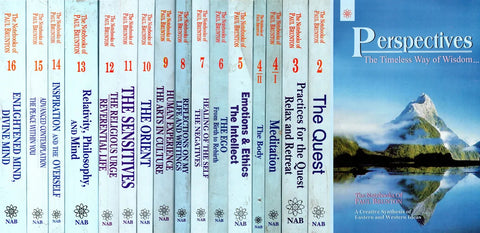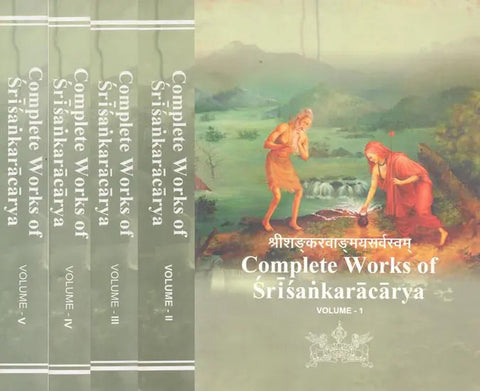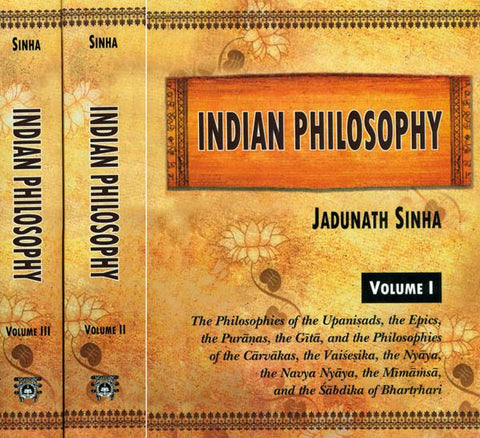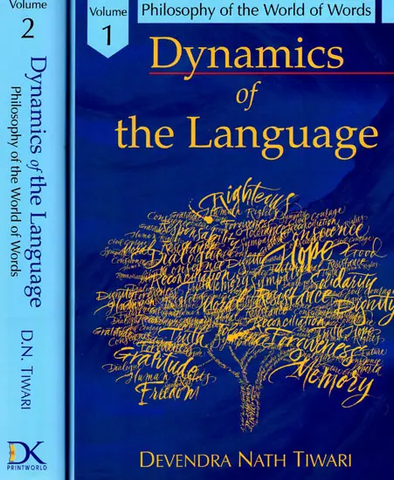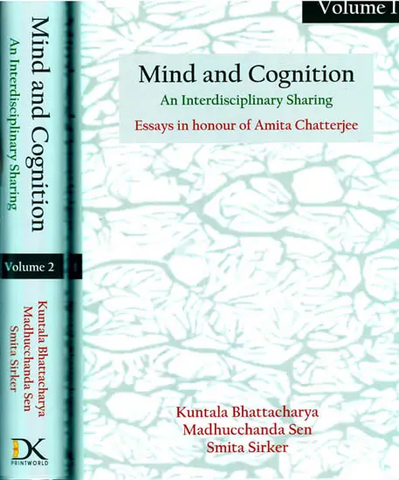Your cart is empty now.
The book is a philosophical treatise on the Hindu, Bauddha and Jaina morals meant for the University students of Indian Ethics as well as for the general readers interested in the subject. Books on the subject are generally written from a historical perspective. On the contrary, the present work is philosophical and critical which takes full cognizance of the recent developments in Western ethical thought and its likely impact on the understanding of traditional Indian ethics. An attempt has been made to understand the subject in the light of certain well-knit conceptual frames developed in the West in the field of ethics. In the course of doing this, certain reconstructions have also been made, but it has always been kept in mind that the reconstructions do not become jejune to the natural spirit of Indian thought.
About The Author
Born on 26th January 1936, the author did his M.A. in 1959 and Ph. D. in 1967. He has a brilliant academic career. He was awarded gold medals at both the Bachelor Honours and Postgraduate levels. He has published eight books and a number of research papers in philosophical journals during his teaching career. He has also lectured at several Indian Universities such as Allahabad, Sagar, Delhi, Guwahati, etc. He retired on 31st January 1996 as a University Professor Head of the Department of Philosophy, and Dean of the Faculty of Humanities, T.M. Bhagalpur University, Bhagalpur. He has been Visiting Fellow at R.D. University, Jabalpur and Visiting Professor at Manipur University, Imphal.
Back of The Book
Shyam Ranganathan
The work presents a compelling, systematic explication of the moral philosophical content of the history of Indian philosophy in contrast to the received wisdom in Indology and comparative philosophy that Indian philosophers were scarcely interested in ethics.
Ranganathan's critical thesis is that the argument for this received wisdom is based upon an inadequate grasp of the history of moral philosophy in the West, against which the Indian tradition is compared. His novel, positive thesis is that "dharma" in all of its uses in the classical Indian tradition is a thin moral term, which is employed by authors to articulate their particular philosophies on morality or ethics.
Exploratory Essays
Hari Shankar Prasad
This book, though extensive textual study, Explores the Buddha's and Buddhism's uncompromising and unflinching emphasis on the centrality of ethics as against any attempts to causally relate moral perfection to a soteriological or eschatological goal. What is most admirable about Buddhism is that it integrates the vertical development of human consciousness, for which the other is the necessary condition, with the gradual development of morality. In brief, Buddhism is about overcoming suffering, the greatest evil thought ethnicization of Human consciousness and conduct, which also takes care of the ethnicization of society and the universe, Besides, some of the essays of this book explore many other themes like Buddhist epistemology, nature of self, time, and interculturality.
Writing a book on traditional Indian ethics on which books are aplenty is by no means a novel enterprise. Yet, the need for a book on the subject continues to be felt by students, research scholars and teachers at the universities to stimulate their thinking on newer interpretations. Books on the subject are often written from a historical perspective dealing with the ethics of the Vedas, the Upanishads, the Smrtis and the Philosophical systems in more or less, a chronological manner. But that is hardly enough critical or philosophical to meet the need of the academic circle. The present work makes a sincere effort to fulfil that need.
Some books on the subject have been very ably written with critical and philosophical insight. It is not therefore fair to complain that all books on the subject are of the same kind. Prof. S. K. Maitra's book Ethics of the Hindu may be cited as an example. The book is philosophical and critical, but it hardly takes any note of the magnificent development that ethical thought has made in the present century, especially in the West. At the time Maitra's book was published these development were perhaps not very well-known in our country. The present work takes full cognisance of the recent development in Western ethical thought and its likely impact on the understanding of traditional Indian ethics. That is the speciality of the present work. Moreover, Maitra's book, as they suggest, is a treatise, especially on Hindu Ethics. Ethical ideas found in Buddhism and Jainism have been occasionally dealt with. On the contrary, the present work takes equal note of the ethical ideas contained in Hindu, Buddha and Jaina traditions, while dealing with the subject the subject in its special framework of presentation.
The distinctive development in Western ethics has given rise to certain well-knit conceptual moulds, which, if properly applied to any system of ethics, can help us to understand the subject better. That is what I have tried to do in my present book. In the course of doing this, certain reconstructions were also made because materials suited to these conceptual moulds are not always readily or directly available in the Indian thought. But to the best of my capacity, this reconstruction has been kept within legitimate limits so that they do not become Jejune to the natural spirit of the Indian thought.
I hope my present work will help scholars, teachers and students to understand the subject in a fresh light. If my hope is realised even partially, I will feel my labour to have been amply regarded.
In my work, I have got valuable help, in one form or the other; from some of my elders, colleagues and students. I am grateful to them. The first who comes to my mind is Professor Nityanand Mishra, Ex-Head of the Department of Philosophy, at Bhagalpur University. It is he who actually initiated the idea of writing such a book and also encouraged me from time to time in my endeavour. I express my heartfelt gratitude to him. I am also indebted to the late Professor R. K. Tripathi of Banaras Hindu University who enlightened me on my many intricate points. I am grateful to Dr. (Smt.) Pratima Ganguli, one of my best students and now my colleague for many valuable suggestions. To many others who helped me in several ways I am grateful. Last, but not the least, I must thank M/s Motilal Banarsidass for readily taking up the publication of the work.
| preface | v | |
| Abbreviations | xi | |
| Chapter I: Indian Concept of Morality | 1-14 | |
| 1. | Morality as Distinguished from Non-morality | 1 |
| 2. | Morality as Distinguished from Immorality | 8 |
| Chapter II: Sources of Moral Ideas and Beliefs | 15-24 | |
| 1. | Scriptures | 15 |
| 2. | Path Trod by Great People | 16 |
| 3. | The Voice of Conscience | 18 |
| 4. | Reason | 19 |
| 5. | Conclusion | 22 |
| Chapter III: Object of Moral Evaluation | 25-30 | |
| 1. | The Problem | 25 |
| 2. | The Vedic View | 26 |
| 3. | The View of the Smrtis | 26 |
| 4. | The Upanisadic View | 27 |
| 5. | The Nyaya-Vaisesika Views | 27 |
| 6. | The Mimamsa View | 28 |
| 7. | The Bauddha and Jaina View | 28 |
| Chapter IV: Characteristics of the Indian Moral System | 31-40 | |
| 1. | Social and Individual Ethics | 32 |
| 2. | Spiritualistic Outlook | 32 |
| 3. | Metaphysical Basis | 33 |
| 4. | Authority as the primary Source | 33 |
| 5. | More perceptive than Speculative | 34 |
| 6. | Humanism | 35 |
| 7. | Moksa as the Ideal of Life | 37 |
| Chapter V: Basic Presuppositions of Morality | ||
| 1. | Freedom | 41 |
| 2. | The Law of Samara | 42 |
| 3. | Rebirth and Samara | 43 |
| 4. | Immortality of the soul | 44 |
| 5. | Avidya | 44 |
| Chapter VI: Development of Moral Belies and Ideas in Indian Thought | 47-72 | |
| 1. | The Vedas | 47 |
| 2. | The Upanisads | 49 |
| 3. | The Smrtis | 51 |
| 4. | The Epics (especially the Mahabharata including the Bhagavadgita) | 54 |
| 5. | The System: | 57 |
| (a) | The Nyaya-Vaisesika | |
| (b) | The Samkhya Yoga | |
| (c) | The Mimamsa | |
| (d) | The Samkara Vedanta | |
| (e) | The Ramanuja Vedanta | |
| (f) | Buddhism and Jainism | |
| (g) | The Carvaka | |
| 6. | Modern Indian Thought | 67 |
| Chapter VII: Teleological and Deontological Theories in Indian Ethics | 73-83 | |
| 1. | Teleology and Deontological: General Introduction | 73 |
| 2. | The General Character of the Indian Ethics System | 74 |
| 3. | The Nyaya-Vaisesika | 77 |
| 4. | The Mimamsa | 78 |
| 5. | The Ramanuja Vedanta | 80 |
| 6. | The Samkhya and the Advaita Vedanta | 81 |
| 7. | The Non-orthodox System (Carvaka, Buddhism and Jainism) | 82 |
| Chapter VIII: The Content of Dharma: Virtues and Duties | 85-99 | |
| 1. | The Content of Virtue and Duty | 85 |
| 2. | Virtues and Duties in Indian Ethics | 86 |
| (a) | The Vedas and the Upanisads | |
| (b) | The Dharma- sutras and the Dharma- Sastras (Sadharana Dharmas) | |
| (c) | The Nyaya-Vaisesika (Sadharana Dharmas) | |
| (d) | The Yoga | |
| (e) | The Ramanuja Vedanta | |
| 3. | Varnasrama Dharmas | 93 |
| 4. | Buddhism and Jainism | 95 |
| 5. | A General Estimate | 96 |
| Chapter IX: Dharma and Moksa | 101-117 | |
| 1. | The Concept of Moksa: | 101 |
| (a) | The Vedas, as the Upanisads and the Bhagavadgita | |
| (b) | The Nyaya-Vaisesika | |
| (c) | The Samkhya | |
| (d) | The Mimamsa | |
| (e) | The Vedanta (Samkara and Ramanuja) | |
| (f) | Buddhism | |
| (g) | Jainism | |
| (h) | General Remarks | |
| 2. | The Role of Dharma in Moksa | 106 |
| (a) | The Vedas and the Upanisads | |
| (b) | The Bhagavadgita | |
| (c) | The Nyaya-Vaisesika | |
| (d) | The Samkhya | |
| (e) | The Mimamsa | |
| (f) | The Samkara Vedanta | |
| (g) | The Ramanuja Vedanta | |
| (h) | Buddhism | |
| (i) | Jainism | |
| 3. | General Estimate | 116 |
| Chapter X: Ethical Other Related Concepts | 119-163 | |
| 1. | Rta | 119 |
| 2. | Dharma | 121 |
| 3. | Karma |
125 |
| 4. | Niskama Karma | 128 |
| 5. | Purusartha | 133 |
| 6. | Freedom and Responsibility | 139 |
| 7. | Raga and Dvesa | 147 |
| 8. | Klesa | 149 |
| 9. | Aicchika and Anaicchika Karmas | 150 |
| 10. | Sreyah and Preyah (The Good and the Pleasant) | 151 |
| Chapter XI: Justification of Morality in Indian Thought | 155-163 | |
| 1. | Question of Justification | 155 |
| 2. | Two Senses of Justification | 157 |
| 3. | Justification in Indian Thought | 159 |
| Selected Bibliography | 165 | |
| Index | 169 | |
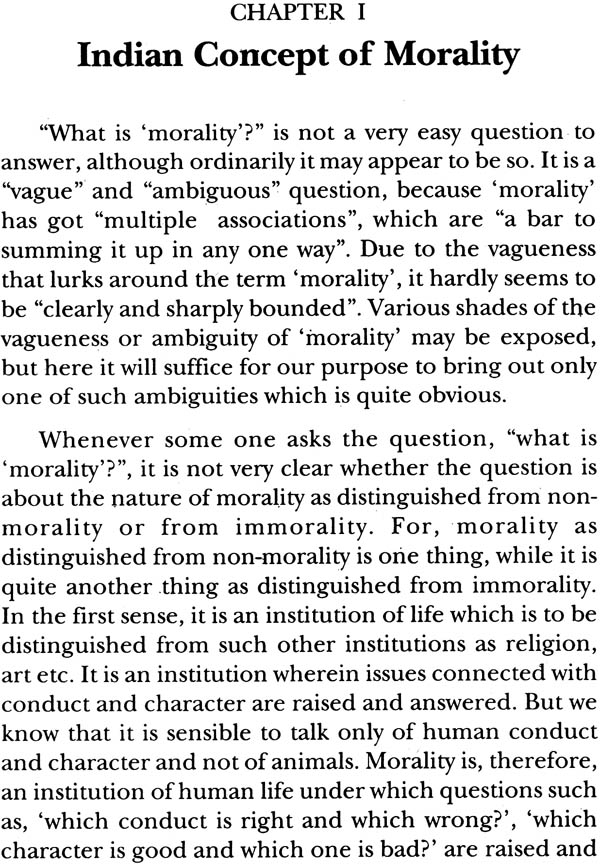
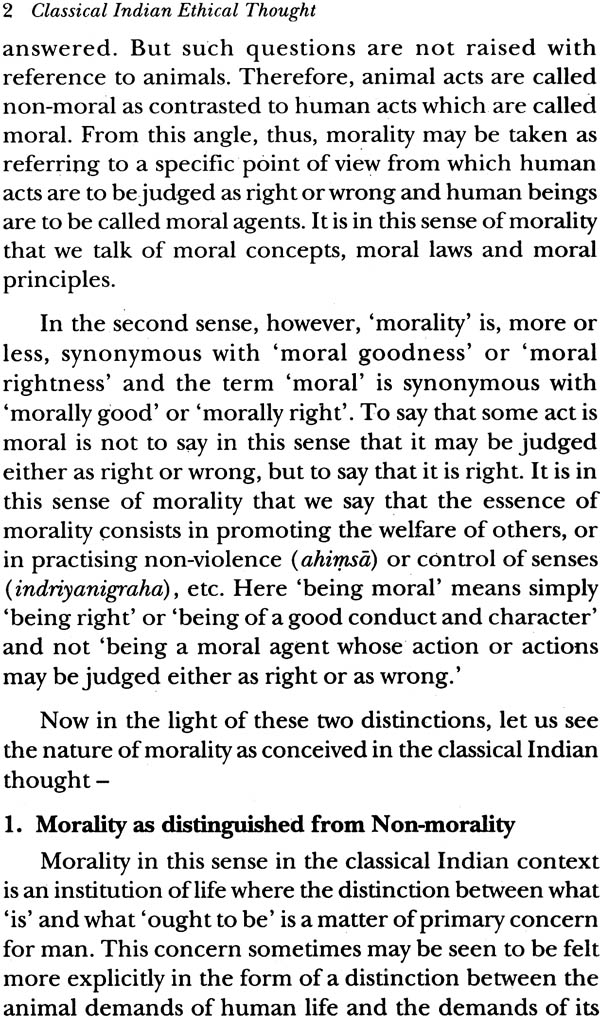

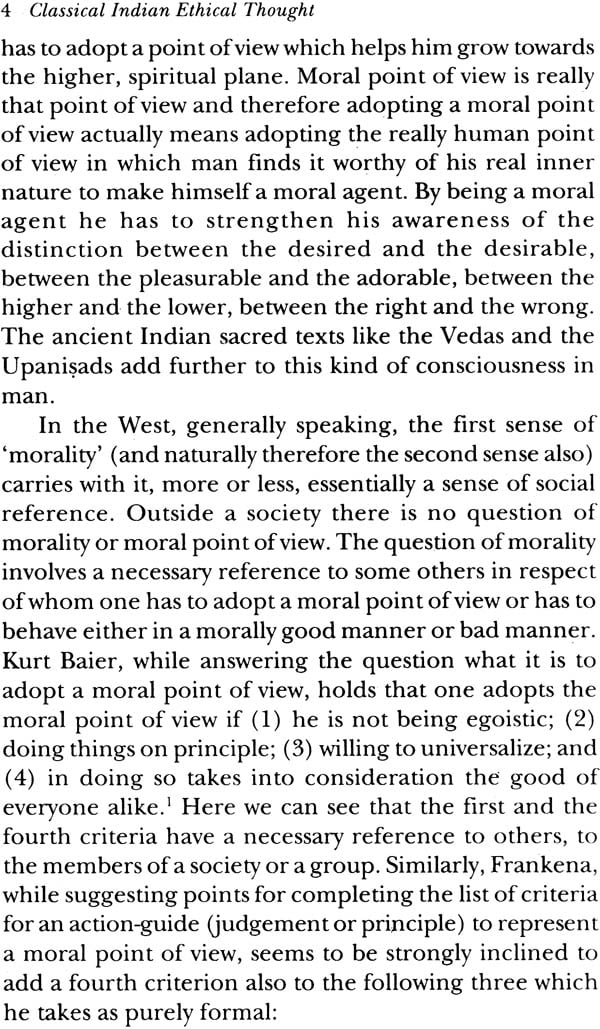
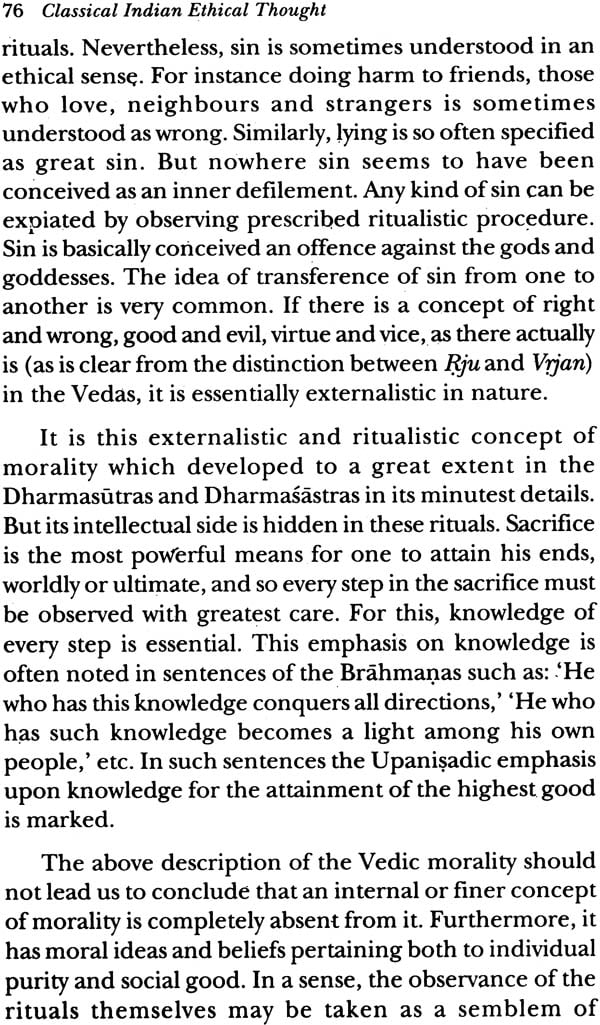
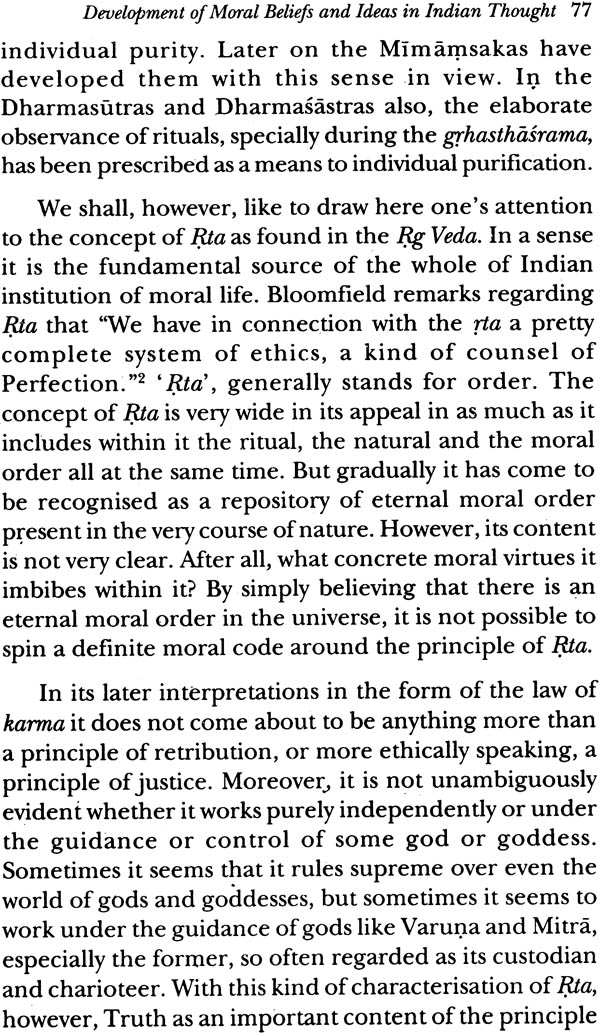
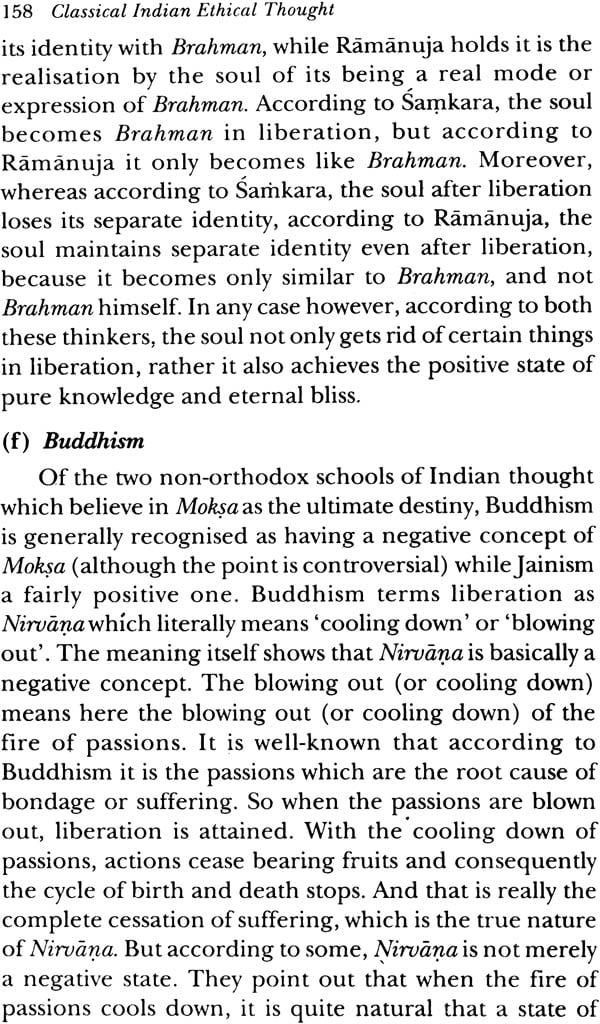
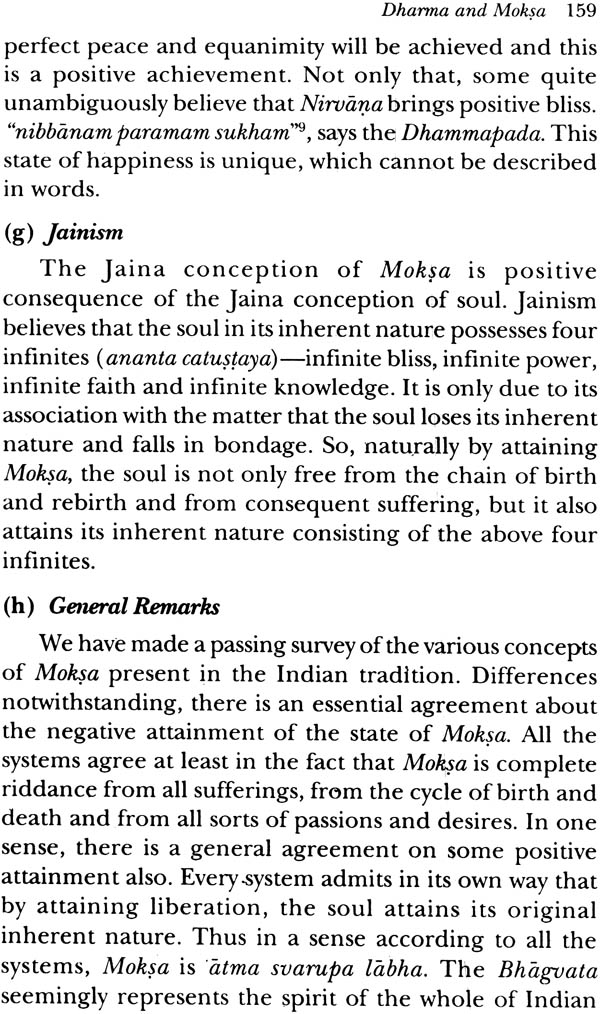
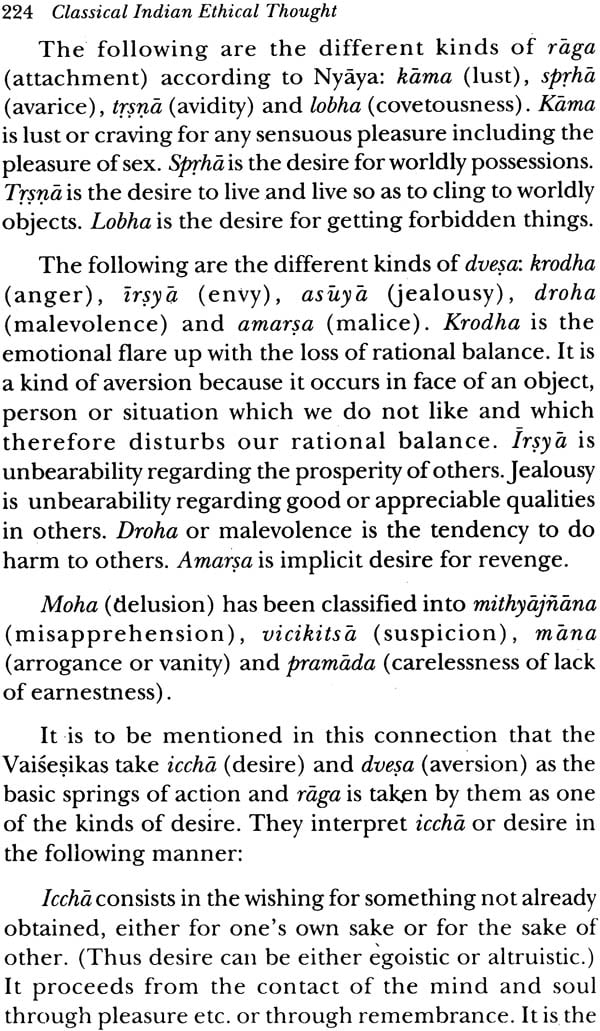
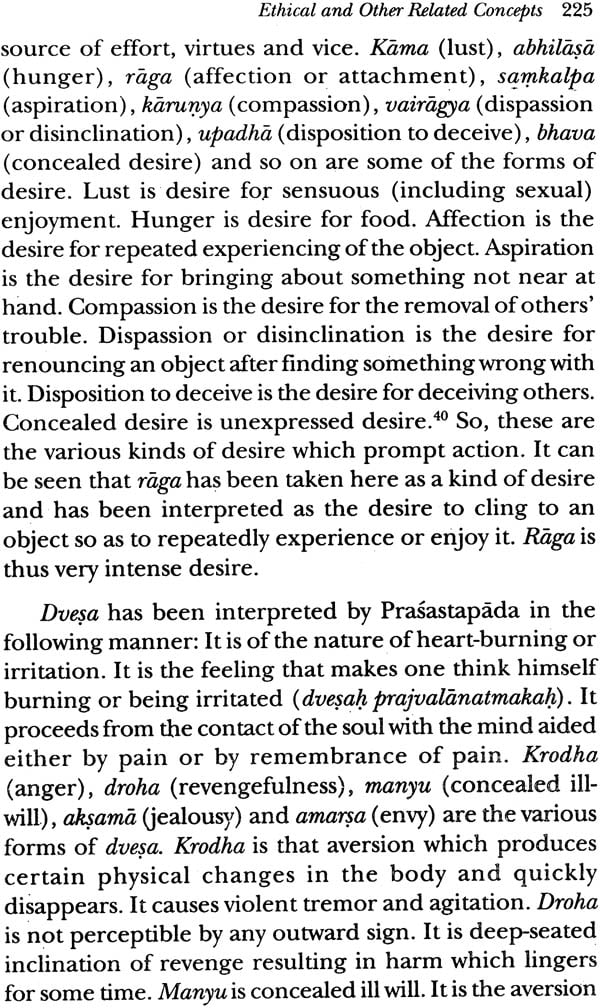
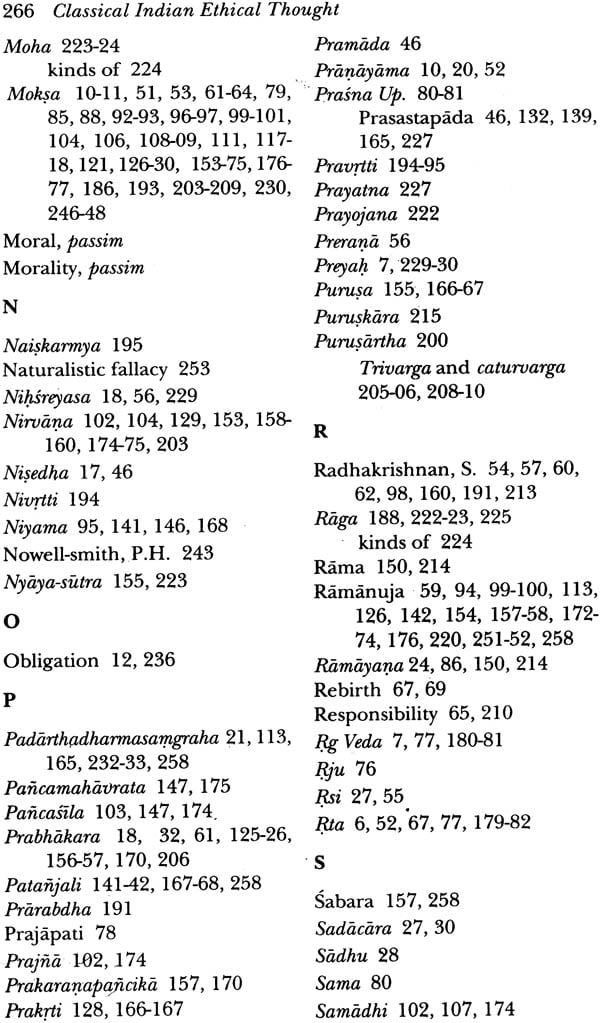
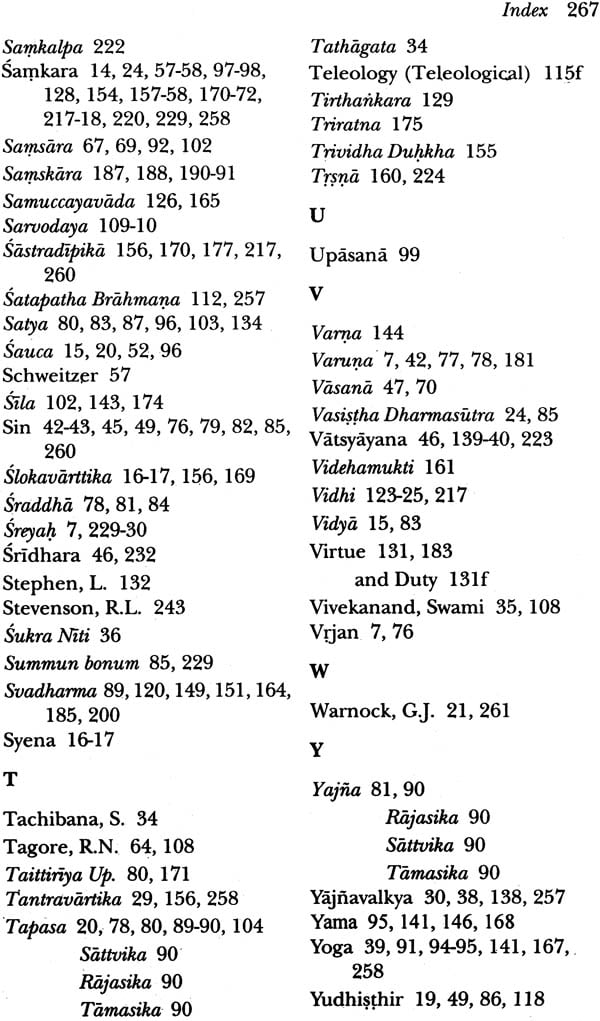
Delivery and Shipping Policy
- INTERNATIONAL SHIPPING
- Rs.1000-1100/kg
- ESTD. Delivery Time: 2-3 weeks (depending on location)
- Bubble Wrapped with Extra Padding
- NATIONAL SHIPPING
- NCR: Rs. 30/half kg
- Standard: Rs. 80/half kg
- Express shipments also available on Request
- ESTD. Delivery Time: Ranging from 1-4 days up to 7 business days (Depending on your choice of Delivery)
- TRACKING
- All orders; national or international, will be provided with a Tracking ID to check the status of their respective orders
- Depending on the Shipping Service, Tracking ID may be used on their respective tracking portals
Frequently Asked Questions (FAQs)
Domestic Shipping: 3-4 Days (after shipping)
International Shipping: 1-2 weeks (based on your location)
You will receive an email once your order has been shipped or you can email us if you didn't receive tracking details (info@mlbd.co.in)
Every book that we sell is the latest edition except all the rare books
Yes, we do provide free shipping, only on domestic orders (within India) above Rs.1500


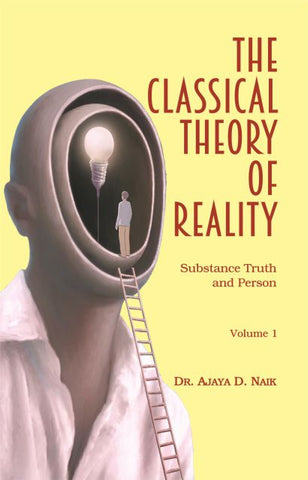
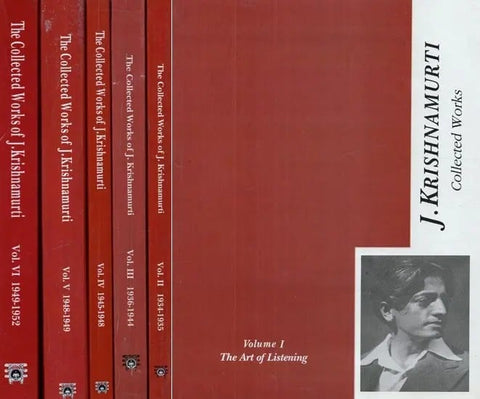

![A HISTORY OF INDIAN PHILOSOPHY [5 VOLUMES] by Surendranath Dasgupta](http://www.motilalbanarsidass.com/cdn/shop/products/HISTORYOFINDIANPHILOSOPHY_large.jpg?v=1675238163)
